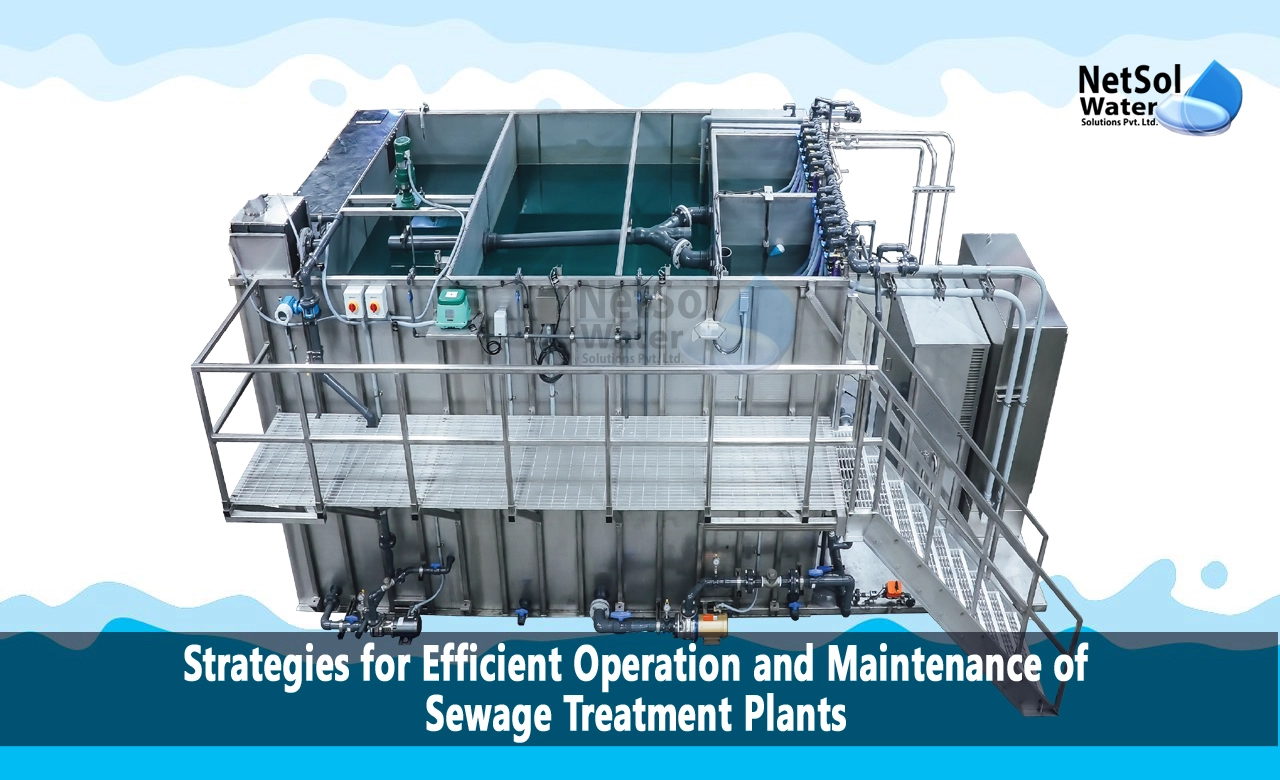What are the Strategies for Efficient O&M of STP Plants?
Sewage treatment plants play a vital role in protecting public health and the environment by removing contaminants from wastewater before it is discharged into water bodies. Proper operation and maintenance of sewage treatment plants is crucial to ensure optimal performance and compliance with discharge regulations. We discuss strategies for efficient operation and maintenance of sewage treatment plants.
Strategies for Efficient Operation and Maintenance
Preventive Maintenance
Implementing a comprehensive preventive maintenance program is essential for avoiding equipment failures and process upsets. Key aspects of preventive maintenance include:
1- Regular inspection and lubrication of pumps, blowers, clarifiers, filters, and other mechanical equipment according to manufacturer recommendations. This helps detect impending problems before they lead to breakdowns.
2- Routine testing and calibration of online instrumentation and controls. This ensures measurements and control actions are accurate.
3- Scheduled overhaul and replacement of parts. By proactively rebuilding or replacing worn parts, unplanned downtime can be minimized.
4- Cleaning of tanks, channels, pipes, diffusers, and other equipment on a periodic basis. This maintains hydraulic capacity and prevents buildup of solids.
Proactive Operator Training
Well-trained plant operators are invaluable for optimizing sewage treatment plant performance. Operators should receive ongoing training on topics such as:
1- Process control strategies for achieving proper sludge age, dissolved oxygen levels, and other critical parameters.
2- Troubleshooting techniques for diagnosing and addressing problems.
3- Lab testing procedures for process monitoring and regulatory compliance.
4- Maintenance and repair procedures for various types of equipment.
5- Safety protocols for working around hazardous gases, chemicals, and other risks.
Energy Efficiency
Energy consumption accounts for a major share of sewage treatment plant operating costs. Strategies for improving energy efficiency include:
1- Optimizing aeration system operation to avoid excess aeration.
2- Utilizing variable frequency drives and premium efficiency motors.
3- Installing energy-efficient blowers and aerators.
4- Capturing heat from biogas production for digester heating or other uses.
5- Switching to energy-efficient pumps, blowers, and other equipment over time.
6- Implementing automated process control to optimize energy usage.
Resource Recovery
Resource recovery involves extracting value from the residuals and byproducts of wastewater treatment. Examples include:
1- Capturing biogas from sludge digestion for power generation or natural gas replacement. This offsetspurchased energy.
2- Using treated wastewater effluent for landscape irrigation, industrial processes, or groundwater recharge.
3- Processing waste sludge using drying, composting, or other techniques to create biosolids for land application, reducing sludge disposal costs.
4- Recovering nutrients such as phosphorus and nitrogen for use as fertilizer.
Resource recovery initiatives enhance sustainability and can provide revenue streams that offset plant operation costs.
Automation
The use of automated control systems, remote monitoring, and data analytics is rapidly growing at sewage treatment plants. Benefits of plant automation include:
1- More consistent and optimized process operation with less need for manual intervention.
2- Early warning of developing issues so operators can respond before small problems become major failures or permit violations.
3- Improved data collection to guide operational decisions and demonstrate regulatory compliance.
4- Reduced labor requirements over the long-term as automation handles more basic monitoring and control functions.
Conclusion
Employing strategies such as preventive maintenance, operator training, energy and resource recovery programs, and automation provides a holistic approach to improving the efficiency and cost-effectiveness of sewage treatment plant operation and maintenance. The investments made in these areas are returned many times over through higher treatment reliability, lower operating costs, and reduced risks of permit violations or environmental damage. With proper operation and maintenance, sewage treatment plants can continue sustaining community health while protecting water resources for future generations.
Do you need an advice or assistance on selecting the best water and waste water treatment unit? We have solutions for all your problems!
Let us know your problem, our experts will make sure that it goes away.
For an assistance or related query,
Call on +91-965-060-8473 Or write us at enquiry@netsolwater.com



